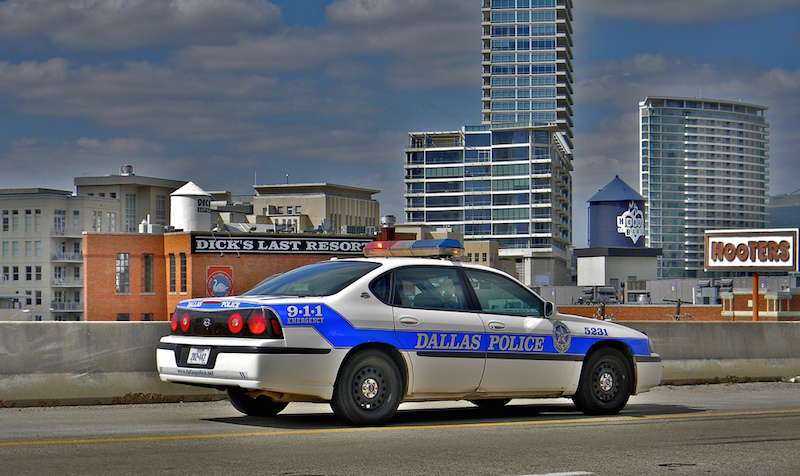Since the death of Michael Brown in Ferguson last August, the reputation and trust afforded to police officers nationwide has been questioned. Smartphone videos and body cameras have changed everything.
Despite the perception of an increase in complaints about the use of police force, the Dallas Police Department claims a dramatic drop in the number of complaints.
Naomi Martin, reporter for the Dallas Morning News, has written about the self-proclaimed success of the city’s police department and what some skeptics are saying today.
“[Dallas Police Chief David Brown] talks about how the department has improved and increased the frequency of new training that they’re doing called reality-based training … They look at things like Ferguson or Eric Garner’s death in New York – different ways that police have handled encounters that lead to deaths or controversial incidents, and they’re basically re-enacting these incidents and trying to end them in a way that … is more peaceful.” Martin says.
Reality-based training, required once a year for officers on patrol and once every two years for the whole department, emphasizes de-escalation and talking through issues before a situation gets out of hand.
“[Chief Brown] says that they’re now beginning to see results because everyone’s gone through it,” Martin says.
So, is there data to back up the police department’s claims?
“No, no one has studied this,” Martin says. “The academics that I spoke to were all very interested in why the complaints are so down.”
Complaints decreased from about 147 in 2009 to only 13 filed so far this year. According to Martin, there have been over a hundred complaints annually for most years since 1995.
“A lot of the criminologists I spoke to said that without this issue being studied, it’s hard to draw a line from one thing to another,” Martin says. “They said that there could be other factors, like the so-called Ferguson effect, where a lot of people think that police officers might be holding themselves back a little more because they don’t want to be at the center of a viral video.”
Although Martin says that Chief Brown finds the notion of the Ferguson effect “insulting to officers,” others feel differently.
“Some of his command staff and some of the police unions who I’ve spoken to, they all kind of agree that’s definitely a factor in policing today, that none of these officers can just ignore what’s been happening in the news,” Martin says. “And so even if Chief Brown doesn’t want to say out loud that he thinks officers are holding back, other officers are saying it.”
Martin says the criminologists she spoke to questioned the impact the training could have in such a short time, or whether there was a change in the way complaints were counted. The police department claims to have done their due diligence.
“Chief Brown and his internal affairs commander, who was the one who provided the numbers,” Martin says, “both said that they triple-checked the numbers, that they were even skeptical that they were valid, because of how drastic it was.”
Read Naomi Martin’s article in the Dallas Morning News.














